Guidelines to help you with your farm vehicle inspection
Imagine that you are in your peak harvesting season and your tractor breaks down. You have no backup and are dependent on this one tractor, what would you do?
I can only guess that this could cause a major setback in your operations and negatively impact your cashflow.
The last thing that you want to deal with on your farm is a breakdown of any sort on your vehicle, especially vehicle/s that are key to your production and operate almost on a daily or weekly basis.
One way to avoid this is by constantly monitoring or inspecting your vehicles (tractor, bakkies, or trucks) to see if they are in good condition, before and after usage. You can do this by assigning a specific person (ie: driver) to perform a regular vehicle check.
Why is this important?
The reason for this is to avoid any problems arising in the future when the vehicle needs to be used again. Some farmers have a team of mechanics that are solely employed for the maintenance and well-being of all farm vehicles and on larger farms, tractors serve multiple functions such as land preparation, transportation of equipment and tools, as well as driving employees to different sections of the farm.
Therefore, it’s important to perform regular vehicle inspections and ensure that the person responsible for these inspections records their findings.
A vehicle check can be done using a simple process explained below:
Step 1
Create a task for the Vehicle Check.
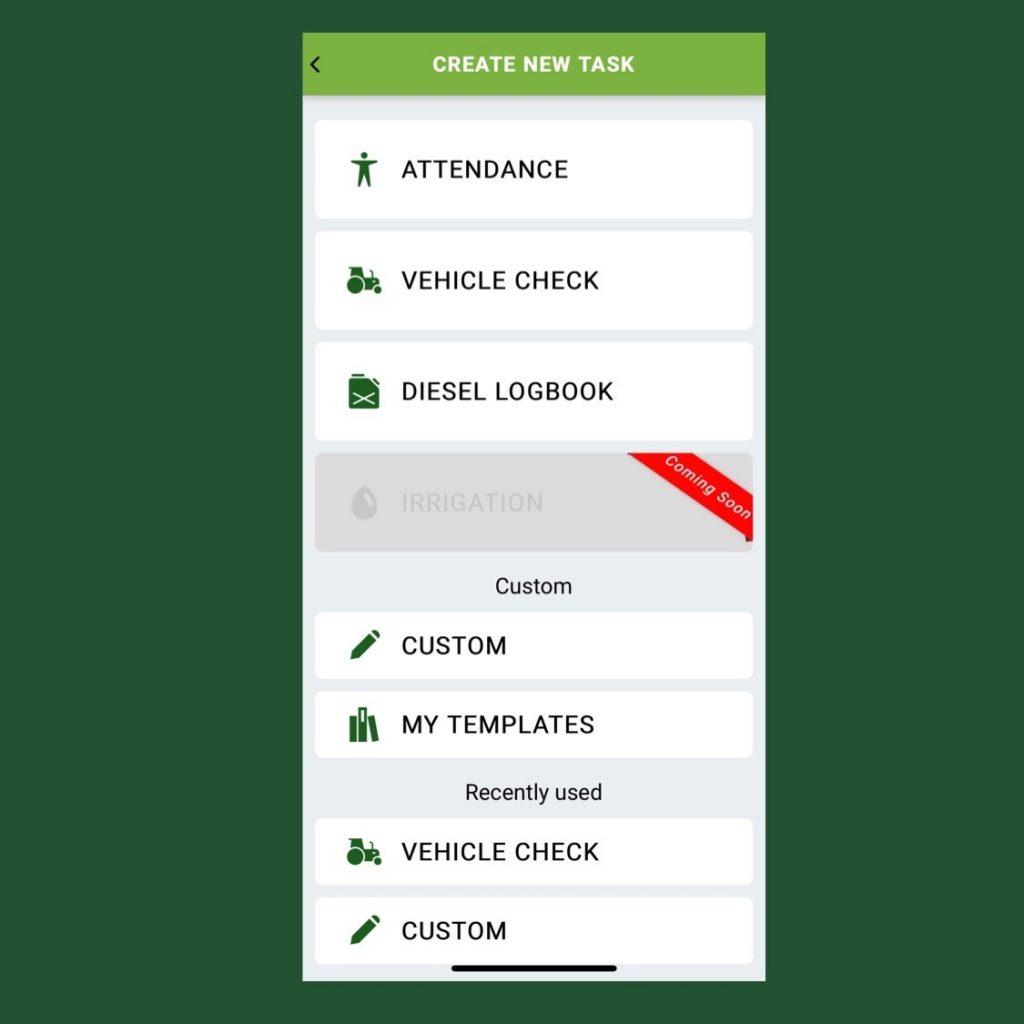
Step 2
Choose the relevant field that you want to include in your Vehicle Check.
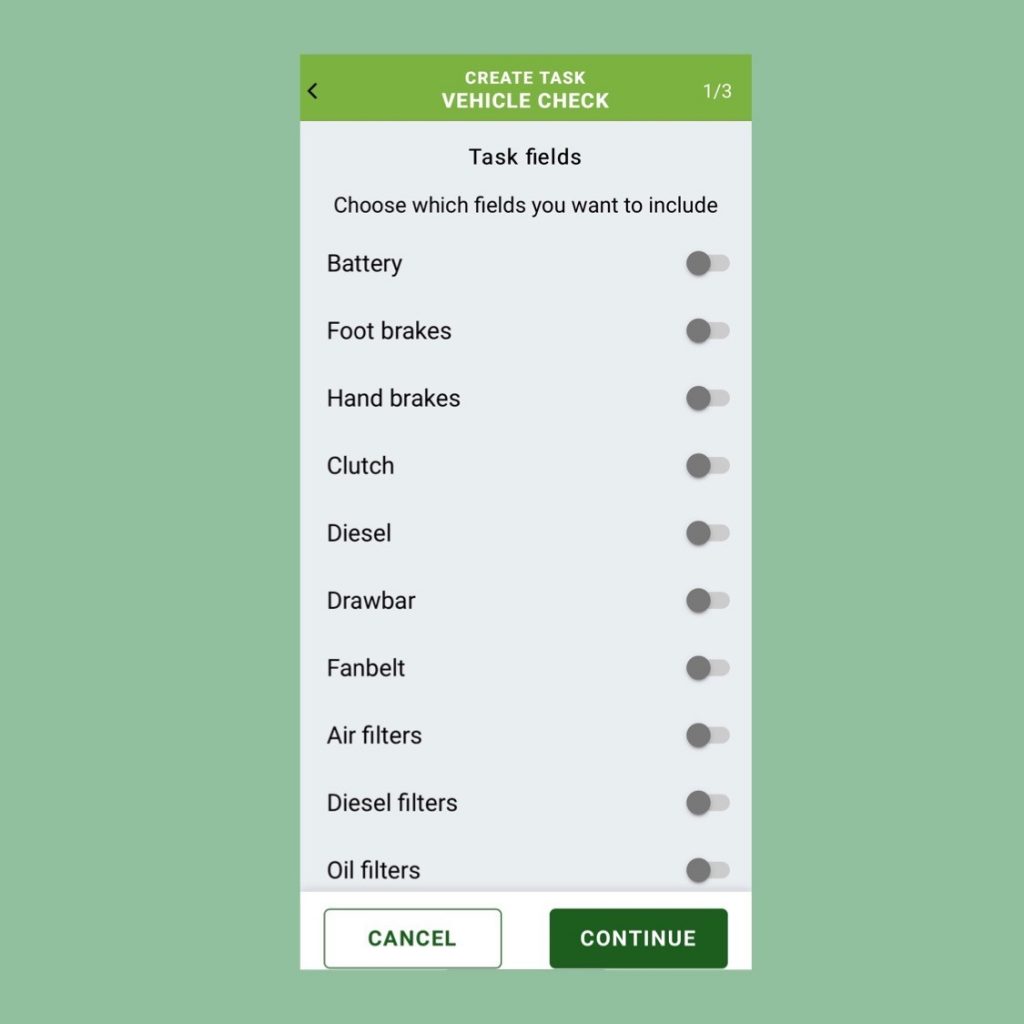
Step 3
Assign who is responsible for completing the task. This could either be yourself or the driver responsible for using the tractor, bakkie or truck.
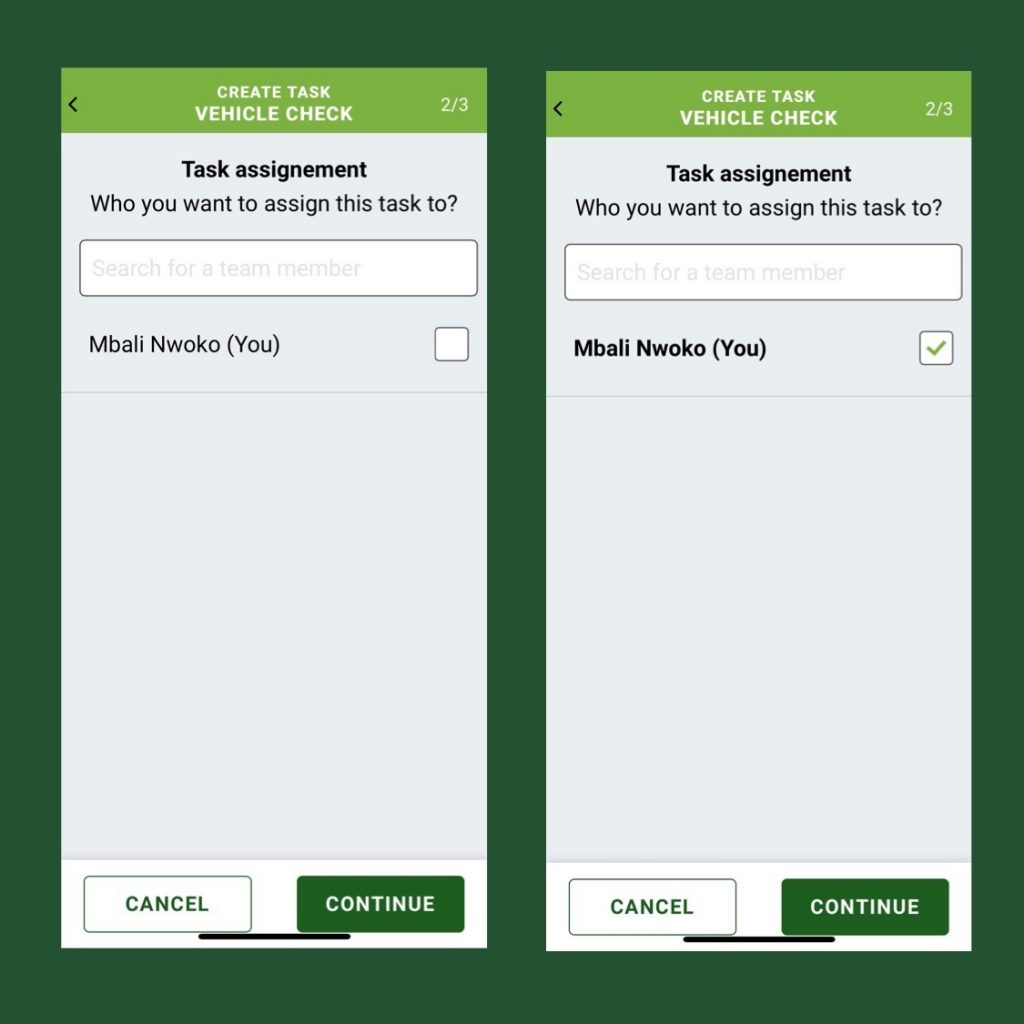
Step 4
Set a date for the Vehicle Check . It could either be in the future or present day and you can decide how often you want to schedule the vehicle check.
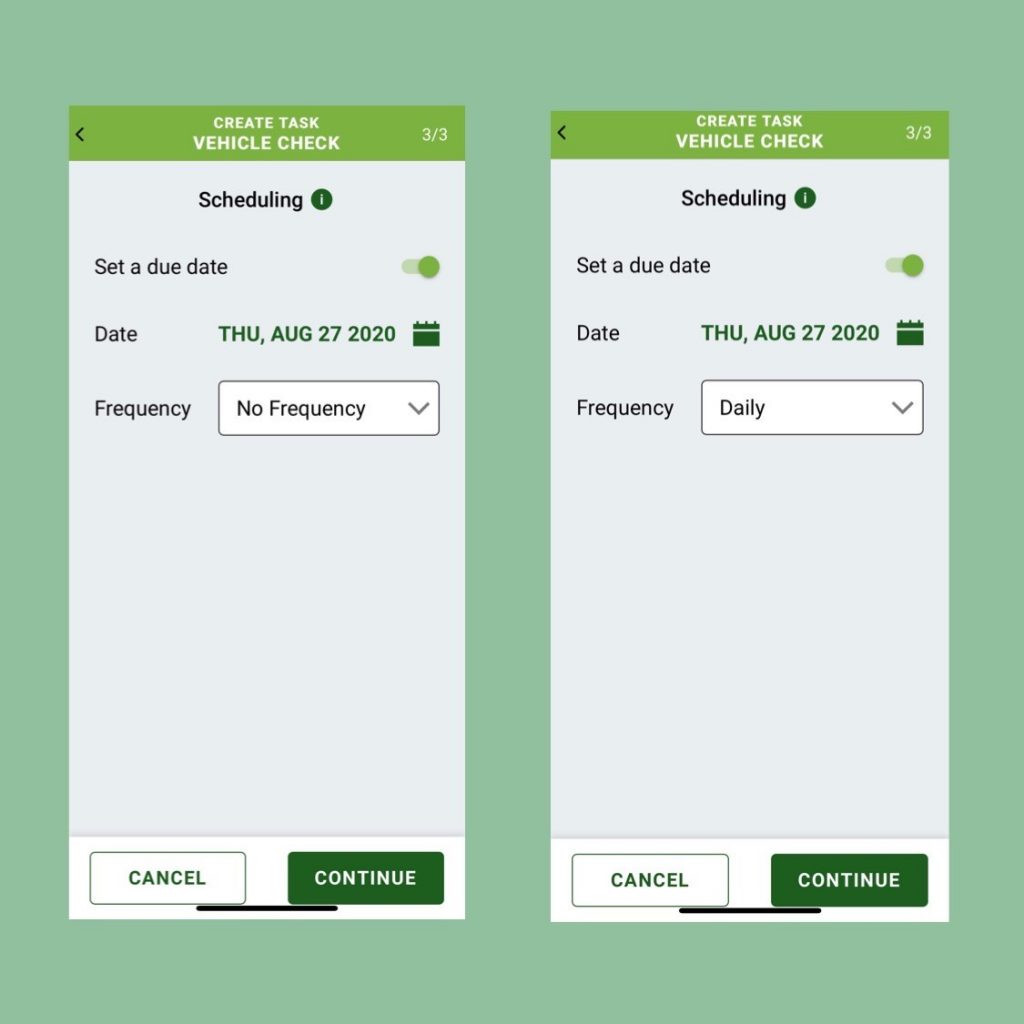
Step 5
Once you are done with the actual checking of the vehicle and are satisfied with its condition, save the information by confirming that what you have selected is accurate.
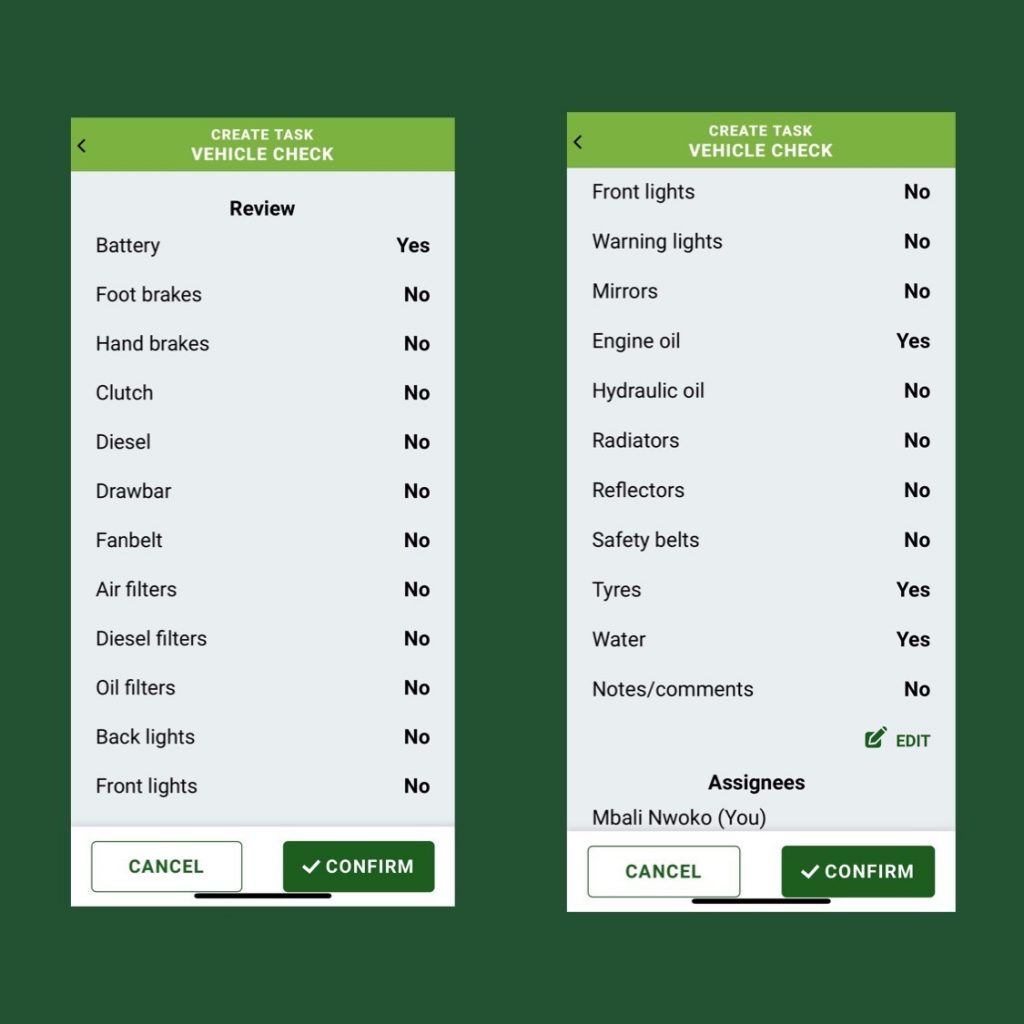
Step 6
Finally, you will be able to see which vehicle/s needs attention (i.e: maintenance) or not.
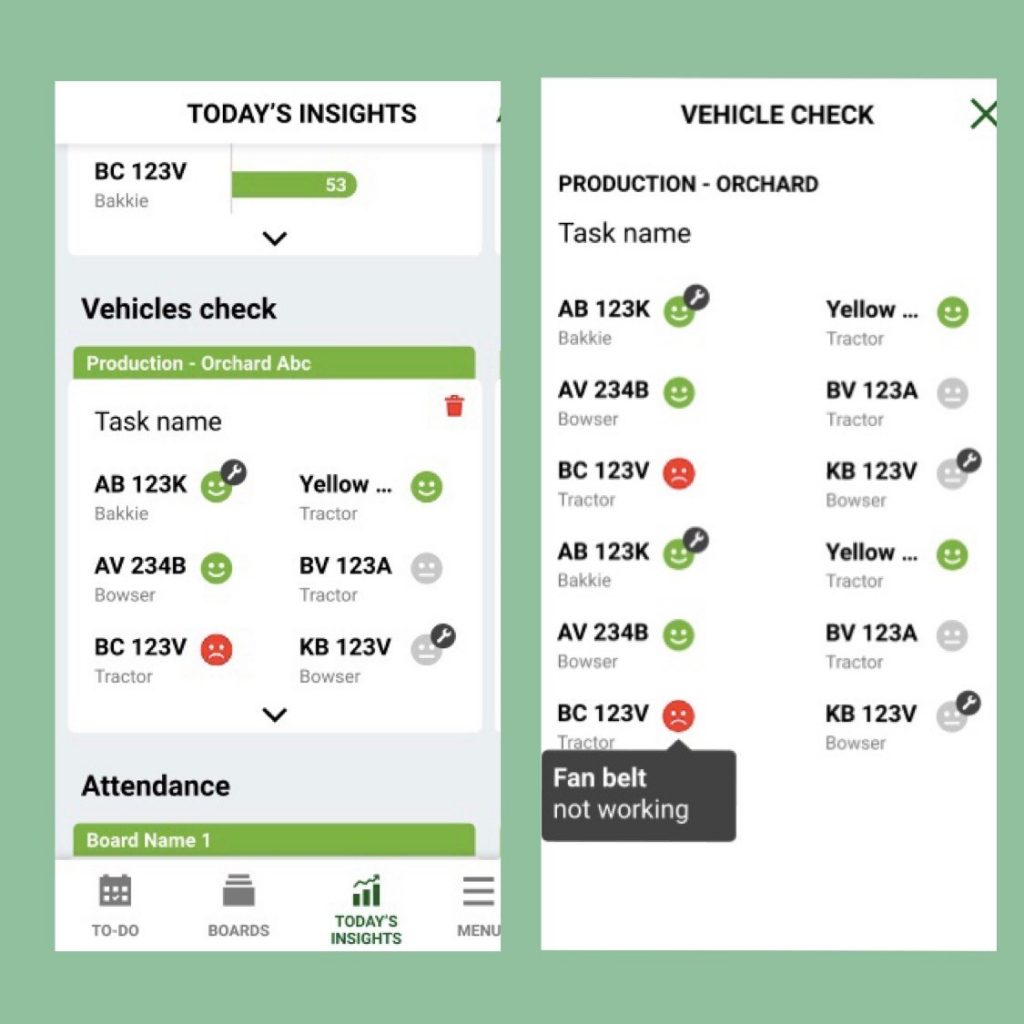
Remember,
Servicing vehicles regularly is an expense. Ideally, you would want to take good care of your vehicles for as long as possible and channel your cashflow to other important priorities that could contribute towards the growth of your farm business.
